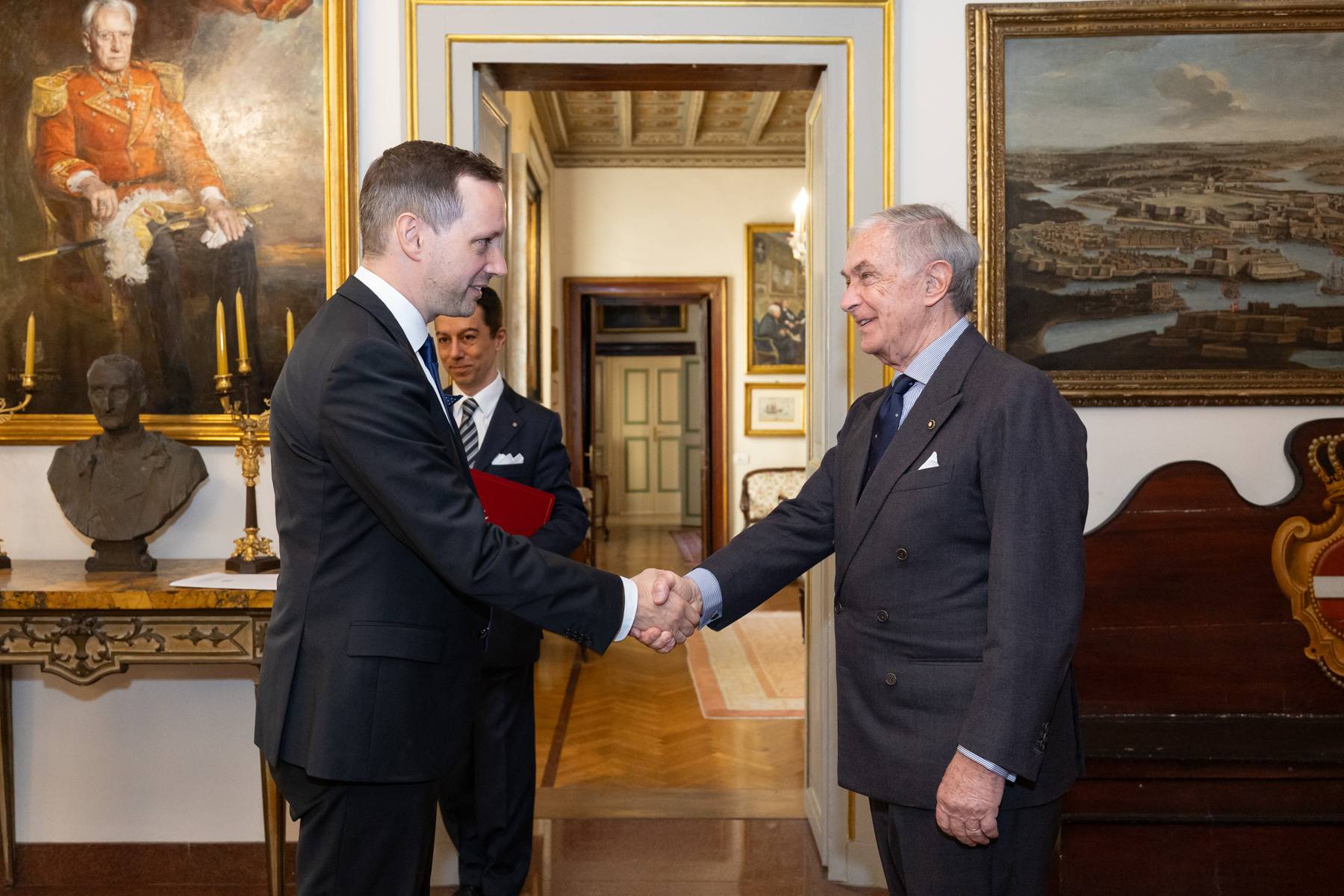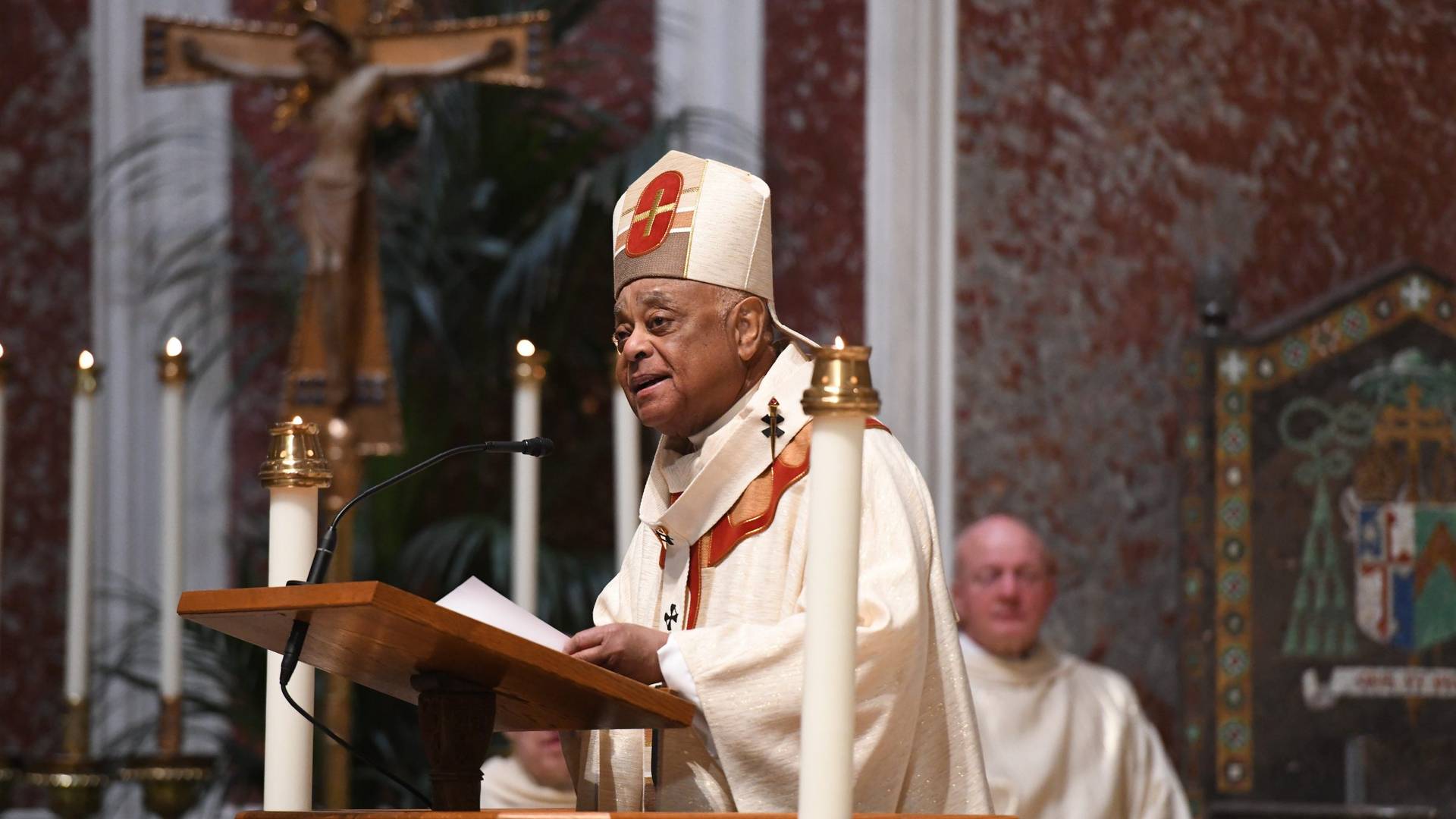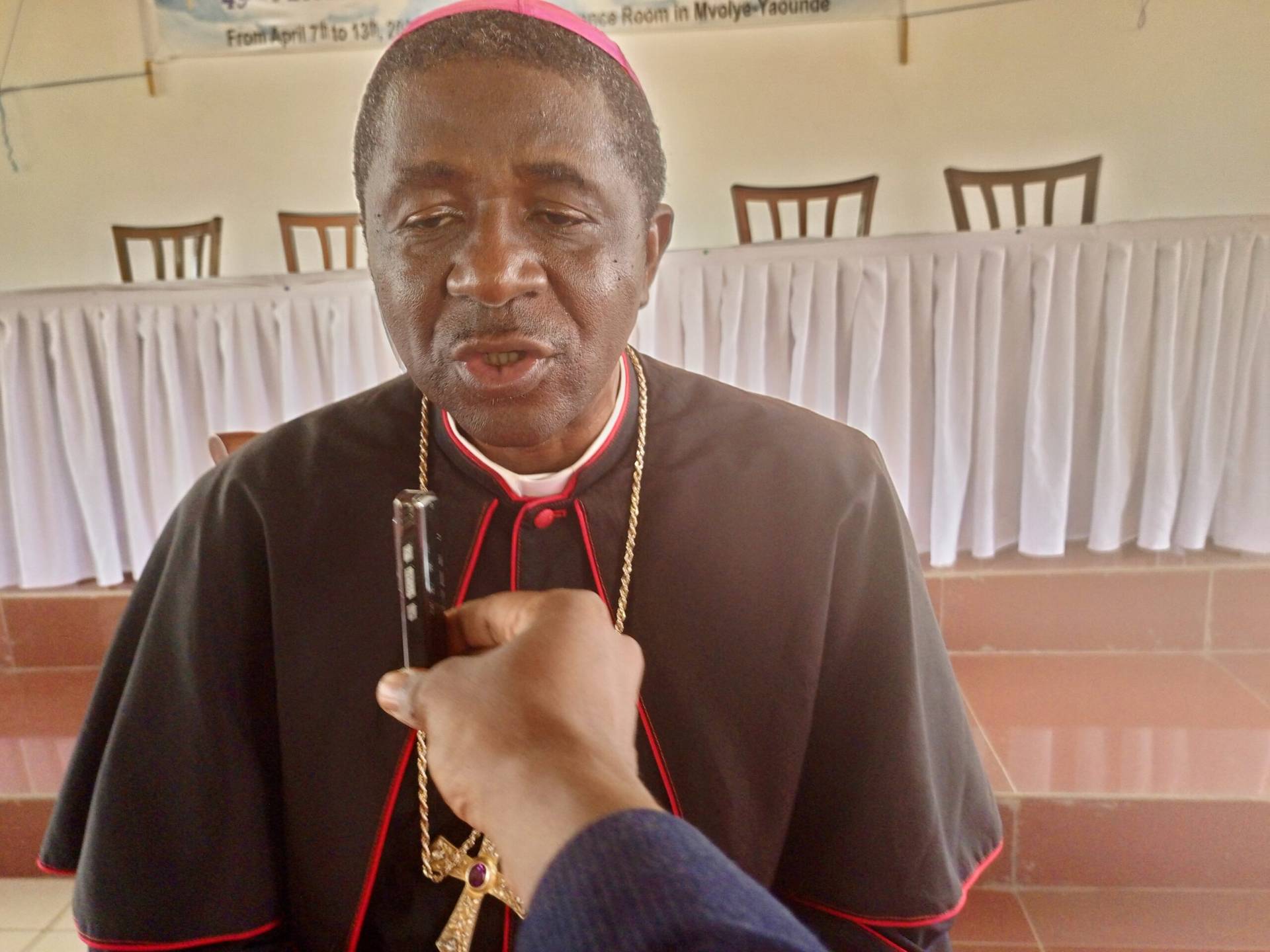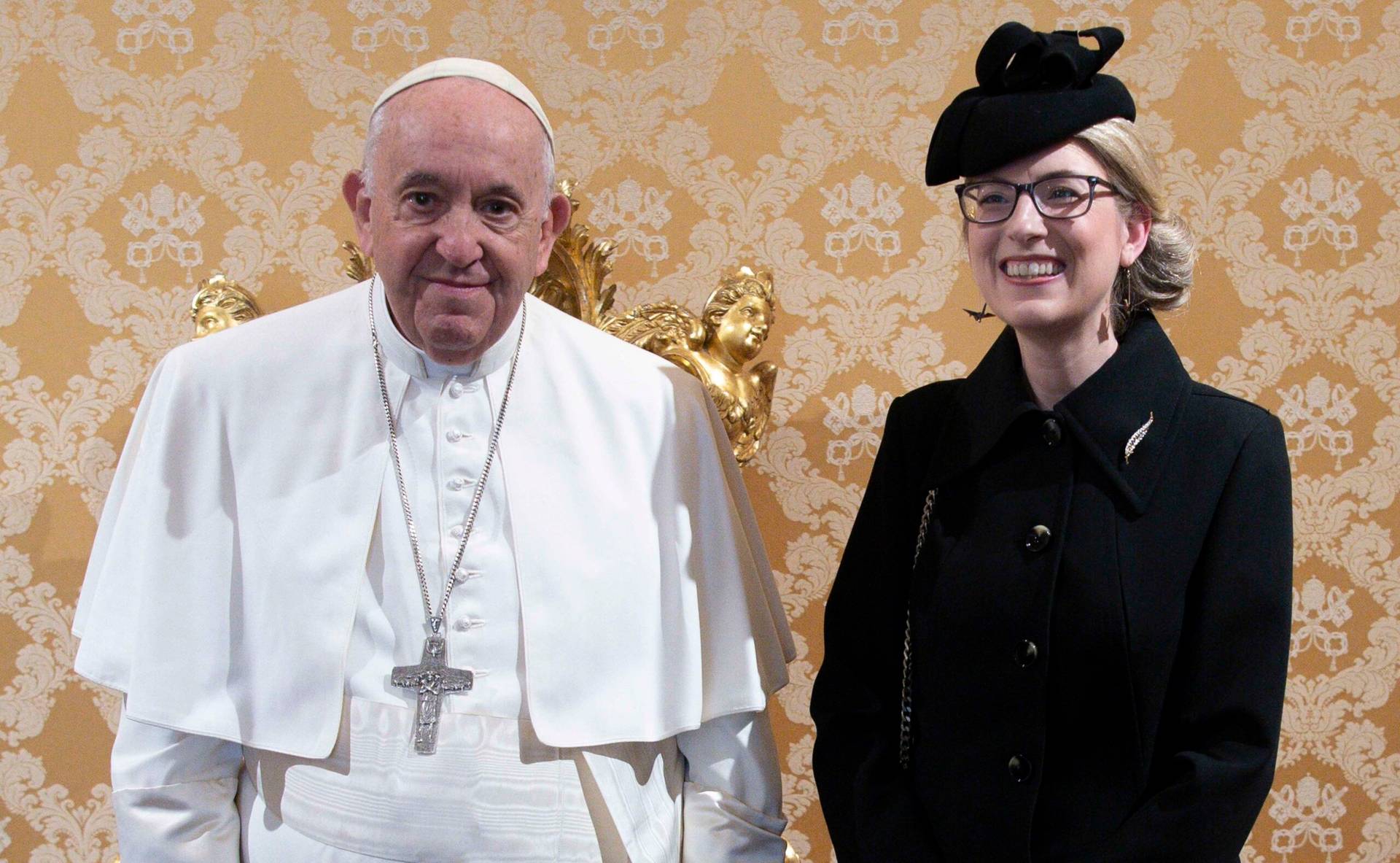ORLANDO, Florida – Archbishop Joseph Kurtz of Louisville, a former president of the U.S. bishops’ conference, said that while he fully supports the bishops’ recent battles over religious freedom, they haven’t yet been fully effective at getting across one key point: Religious freedom isn’t about special privileges, it’s about freedom to serve, especially the most vulnerable.
In the wake of the recent Trinity Lutheran decision of the U.S. Supreme Court, permitting a religious school to receive government funds for resurfacing a parking lot, Kurtz said, “there are others saying this is ‘giving special privileges,’ that ‘we’re instituting a certain state religion.’
“They don’t get it right, but whose fault is that?” Kurtz asked. “I’d like to take some of the responsibility and say, ‘How do we get the word out that religious freedom is a gift to the whole of America?’”
He then referenced the Little Sisters of the Poor, the women’s order at the heart of a legal challenge to mandates for coverage of contraception and drugs regarded as abortion-inducing as part of health care reform under the Obama administration.
“Take the Little Sisters of the Poor. I think most people understand they’re not looking to have special privileges, they’re simply trying to serve the poor,” he said, adding that what has to be gotten across is that “we don’t want the sisters on their heels having to defend their freedom, we want them free to serve.”
Kurtz spoke to Crux during the July 1-4 “Convocation of Catholic Leaders,” a gathering of almost 3,500 bishops, clergy, religious and laity from more than 80 percent of the dioceses in the United States.
On other fronts, Kurtz said:
- In the U.S. church, “there are trains already running. They’re running at different speeds, they’re at different stations, and all the rest,” and one challenge at the convocation is to come up with the rough equivalent of a timetable to coordinate all that movement.
- Pope Francis’s document Evangelii Gaudium, “The Joy of the Gospel,” provides a blueprint for evangelical efforts in the American church. “I would say Pope Francis gave language to what we were already attempting to do, so it fit like a hand in a glove,” he said.
- He’s worried about the ability of Catholic adoption agencies and foster care services to continue helping place children with families, without feeling pressure to abandon policies based on Church teaching such as giving preference to traditional families over same-sex couples.
- Kurtz also argued for public support for faith-based schools, saying, “People should have a right to choose, but right now it only applies to those who can afford it.”
- On international relief efforts, including victims of anti-Christian persecution, Kurtz argued that the U.S. and other global players should take a more proactive approach. “We have to go upstream,” Kurtz said. “Sometimes, we’re dealing with refugees after they’ve already fled, but it’s also important to try to prevent refugee status in the first place.”
- Despite some recent setbacks in the Vatican’s financial reform, Kurtz, who got an award in Orlando for management practices in Louisville from the National Leadership Roundtable, said he’s hoping things get back on track. “We always look at our neighbors to see how we can be of help to others, just as we’re hoping to benefit from other people’s approaches. I hope that for the Vatican as well,” he said.
Crux spoke to Kurtz on June 30. The following are excerpts from that conversation.
Crux: When you were president of the conference, conversations were already ongoing about this convocation. You’ve invested a lot of time and resources. What are you hoping to accomplish?
Kurtz: The idea pre-dates my service, probably by about six or seven years. I remember that what prompted the convocation was a) how do we have a narrative in which we are united in proclaiming the gospel, in the midst of all the challenges or what we would call the landscape? We went through a number of presentations on right-brain thinking and left-brain thinking, and what the best way to engage people is.
How do we reach out? That’s a real challenge, especially with some of the alarming statistics of growing secularism and the number of people who’ve drifted away from the church. Lo and behold, along comes Pope Francis and Evangelii Gaudium, which of course people forget was the apostolic exhortation at the end of the Synod on New Evangelization.
So the impetus becomes now, since we have a language that we didn’t have before, what does it mean to be missionary disciples, to be someone who continues to follow Christ, to deepen our knowledge and our experience of Christ, but to go out? The momentum has built.
Just thinking about the diocese of Louisville, we have 15 members of our staff here, as well as pastoral leaders, who’ve come together. We don’t want to think in silos, something we’ve been trying to fight in the conference for really ten years since the restructuring. But it’s not about what we don’t want to do, but what we want to do positively.
There’s a momentum here. I like to say, in parishes in Louisville, [in the Church] there are trains already running. They’re running at different speeds, they’re at different stations, and all the rest. So in a sense, we join the Church in progress. For me, the biggest event here will be the last day when our staff comes back together again and says, ‘Ok, we’re going back to Louisville to the local church. What is it that we’re taking with us home. What’s the fire?’
And I think it’s most the knowledge, a sense of enthusiasm that I think will come from the presentation and the interaction. I think it will happen with every diocese. The local church will somehow be singing from the same songbook.
You spoke about Evangelii Gaudium. Is it fair to say that this is in a way an attempt to see how best to apply it to the American context in the here and now?
I think it is, so long as we recall that the momentum and impetus came before and we joined it in progress. I would say Pope Francis gave language to what we were already attempting to do, so it fit like a hand in a glove.
This event is also taking place at the end of the Fortnight for Freedom campaign. This particular one occurs immediately after we got the Trinity Lutheran decision, which a lot of people would see as a major victory for religious freedom in America. A case of a school operated by a Lutheran church, that applied for public funding to resurface a playground. And there was an issue. And the Supreme Court, in a 7-2 ruling, decided that it was appropriate. Are you excited about it?
I am. I’m excited about a couple of things. I hope it gives us an opportunity to speak about religious freedom as a freedom to witness and serve, that it’s not a self-serving gift.
I’ve been reading the blogs and what-not, and most people say that this gives a chance for the children who come into the playground a chance to recreate. There are others saying this is ‘giving special privileges,’ that ‘we’re instituting a certain state religion.’ They don’t get it right. And whose fault is that? I’d like to take some of the responsibility and say, ‘How do we get the word out that religious freedom is a gift to the whole of America?’
The whole basis on which our country is built is the pluralism of people who don’t necessarily share the same values, but who come together with a shared conviction that freedom is allowing us all to thrive. And I think that to the extent that we can keep saying and living the fact that this is a freedom to witness and serve, and not to preserve our church institutions, and it’s not about us. We need to be able to convey that in the way that we go about doing our ministry.
I hope that this convocation will help the people of the United States see that the Church has always, and wants to continue to be, of service.
You want to make clear that this is not a parochial or confessional issue? It’s about freeing up religious groups and individuals to serve the common good without having to sacrifice their most cherished beliefs?
That’s exactly right. It’s the important value that we offer when we bring our convictions, especially if it’s a conviction that we are not trying to impose on someone but simply live and propose. The more we can do that, my hope is that these kinds of decisions won’t have the church on its heels.
For instance, take the Little Sisters of the Poor. I think that most people understand they’re not looking to have special privileges, they’re simply trying to serve the poor. And we don’t want the sisters on their heels having to defend their freedom, we want them free to serve.
Recently you put out a tweet saying, ‘Please contact your elected representative to talk about the importance of religious freedom for adoption agencies and foster care.’ What are you concerned about there?
You might remember that I was the director of Catholic Charities when I was in Allentown [Pennsylvania], so it’s dear to my heart. One of the first areas I was involved in was helping families. The Church wants to be true to the convictions of our faith, without losing our ability to serve.
You might also remember the trip I made to the Philippines. I like to connect these together, because they are of one fabric. Our ability with Catholic Relief Services to reach out to every corner of the world is of the same fabric as our ability to walk with a family of, perhaps, a woman who’s made the decision that she’s not able to parent a child and so decides for adoption. We want to be able to walk with that person, and place the child with a loving family.
And you see that at risk today?
I think that there have been situations in different parts of the country where certain restrictions do not allow a Catholic agency [to operate]. There are a couple of examples, where some of the regulations that came forward prohibited us from being able to place the children in a family setting.
And what was the reason for that?
I think the desire on our part to emphasize the need for a child to have a father and a mother.
Was it because you wouldn’t serve same-sex couples?
Not so much refusing service, but giving preference to traditional families.
You also tweeted about the importance of religious freedom for Catholic schools, which is also part of that fabric. What would you see as the primary religious freedom problem areas in schools today. Hiring and firing?
No, I think the biggest issue with Catholic schools right now is to ensure that a person has the chance to enroll despite their economic challenges. I think the biggest issue with religious freedom at schools is the fact that people should have a right to choose, but right now it only applies to those who can afford it.
In Kentucky, we’re working on a scholarship tax credit. Especially with the cost of education rising and our need to be fair with teachers, we have to be creative. Our parents have been unbelievably willing to make sacrifices, but some of the laws are penalizing those parents, such as the Blaine Amendment, and that has a chilling effect. Every state surrounding us except West Virginia, I believe, has some opportunity for tuition tax credits.
We don’t want a narrow view of religious freedom [that excludes support for faith based schools], which penalizes a family that thinks that their child can survive best and thrive best within a Catholic school.
And I think that, probably, is the biggest issue that we’re facing.
You also sent out another tweet, and many of your brother bishops have been doing this for quite some time, calling for prayer and solidarity with our suffering brothers and sisters in the Middle East, where the threat to religious freedom is far more lethal.
Life and death, yes.
Should the U.S. government be distributing some share of its relief budget for genocide victims in Iraq and Syria through the local churches, to make sure it reaches the Christians who need it but who won’t go to the large refugee camps because they’re afraid of jihadist infiltration?
Let me say two things. First of all, we as the United States bishops, need to listen to the local churches, to the bishops in Syria and Iraq, to see what are their concerns, what can be of help. That’s the first thing.
In terms of governmental funds, the USCCB has long said that we want to serve all refugees, so we’re always reluctant when we start to say, ‘We’re going to serve this person, we’re going to exclude that other.’ I think that in a special way we would be looking for ways to partner with the local church.
Historically this may go down as one of the great rescue missions of the Catholic Church, because were it not for the Knights of Columbus, Aid to the Church in Need, CRS, CNEWA, most of the Christians in the Middle East would have been adrift a long time ago. But those resources aren’t infinite. Obviously, it’s desirable that public money that is being set aside for genocide victims actually reaches them, yes?
Absolutely. Sean Callahan of CRS came to Louisville some months ago and we met with majority representative Mitch McConnell precisely to talk about foreign aid. I think, in many ways, one of the things we talked about, is that you have to go upstream. Sometimes, we’re dealing with refugees after they’ve already fled, but it’s also important to try to prevent refugee status in the first place.
In accompanying the suffering Church, we need to find ways to continue to assist, and government money is the only way. But by all means, help that local church survive – in a sense, we have to create a safe environment where people can live in their own countries. That is always going to be the primary aim.
There’s sometimes a conflict with bishops from the local church who say, ‘We don’t want our people to leave the area.’ And I said: ‘Well, we want to respect that, but if somebody is accepted within the United States, we’re going to serve them.’
On the one hand, when you have a person desperately trying to flee for completely understandable reasons, you want to try to assist them in any way you can, but you also don’t want to eviscerate the local church from which they’re coming. Sometimes it’s hard to know what to do.
If you talk to the local church, sometimes those who are displaced, are uprooted not only from their possessions, but their heritage. It’s not like the United States, where people have had the land maybe for some hundreds of years. These are people who’ve had their land for generations and generations.
One way is to help them in every way possible when they come, but also when the situation in their countries stabilizes, if they want to go back, we should also do everything possible to help them return.
I would love that. I remember that in the 80s, I went to Israel. I remember talking with some of the Palestinian families, and their problem was the drain of talent. Some of the brightest would leave to become educated, but they wouldn’t return. So, I think that any way in which we can be involved and help the local church, we want to do that.
Something we’re trying to do in Louisville, when a priest comes to serve from another locale, the first thing we try to do is look at the principle of mutuality. What are we doing in that local church from where that priest has come?
You came to this interview from being with the National Leadership Roundtable meeting, where you were presented with an award. Tell us about it.
We were honored. We were given a best practices award. That is always something to receive. I work very closely with our chancellor Brian Reynolds. One thing we were able to do is to get a $1 million grant from the Lilly Foundation, in order for us to deal with fiscal literacy. We did some studies, not only about our priests but also our laity, about their ability to care for themselves, to provide for their future.
One of the things we need to do is to assist our people in the way in which they provide for the future, including how they save, and in some cases deal with the debts that come from education.
The second thing, and this is especially important for me, the diet of a priest working in collaboration with lay leadership. So, we’re doing a lot to be able to find good models in which, as I say to my priests, we don’t so much work harder, but we work smarter. That’s something that I’m feeling pretty good about.
The big picture here is careful stewardship of resources?
I would say the big picture is collaboration, models of collaboration. Financial management is one aspect.
The Vatican too is trying to develop good practices for business management, though that effort seems to have hit some roadblocks lately. Are you all praying that the Vatican eventually will also be in a position to be a role model?
Absolutely. One of the best things we can do, I believe, is to continue in our local churches to be transparent and to have good practices. We always look at our neighbors to see how we can be of help to others, just as we’re hoping to benefit from other people’s approaches. I hope that for the Vatican as well.














